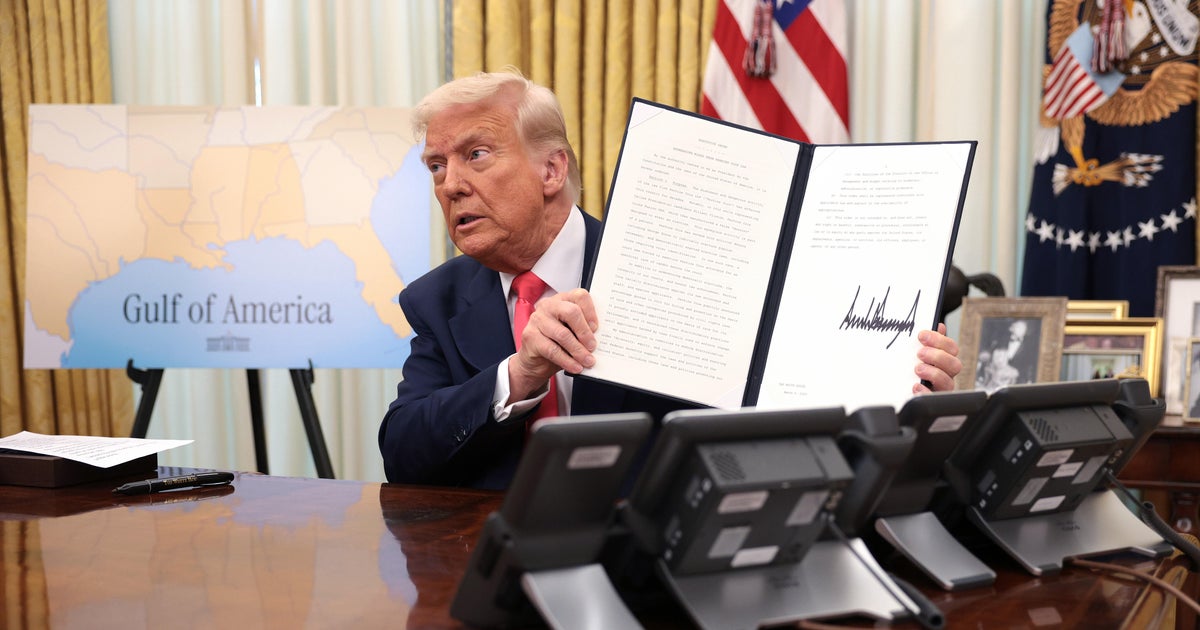House committee interviews former Trump counsel after two-year legal battle
The House Judiciary Committee questioned former White House counsel Don McGahn behind closed doors on Friday, two years after House Democrats originally sought his testimony as part of investigations into former President Donald Trump.
The long-awaited interview is the result of an agreement reached last month in federal court. Lawyers for the Justice Department, who are representing McGahn, and House Democrats said in a filing to federal appeals court in the District of Columbia last month that they intend to submit a request for the case to be removed from the court's 2021 oral argument calendar "in order to allow the parties to implement the accommodation."
The attorneys told the D.C. Circuit that "former President Trump, who is not a party to this case, is not a party to the agreement in principle regarding an accommodation."
Representative Jerry Nadler, chairman of the House Judiciary Committee, told reporters after the questioning that McGahn shed "new light on several troubling events," and was "distressed by President Trump's refusal to follow his legal advice."
House Democrats — then investigating whether Mr. Trump tried to obstruct the Justice Department's probes into his presidential campaign's ties to Russia — originally sued after McGahn defied an April 2019 subpoena on Mr. Trump's orders.
That month, the Justice Department released a redacted version of special counsel Robert Mueller's report on the matter. In the report, Mueller pointedly did not exonerate Mr. Trump of obstruction of justice but also did not recommend prosecuting him, citing Justice Department policy against indicting a sitting president. Mueller's report, which identified 10 instances in which Mr. Trump may have obstructed justice during the FBI's probe, quoted extensively from interviews with McGahn, who described the Republican president's efforts to stifle the investigation.
The Trump White House blocked McGahn from complying with Democrats' subpoena, arguing he was "absolutely immune" from testifying. The Judiciary Committee went to court in August 2019 to enforce the subpoena, but a three-judge panel on the D.C. Circuit last year ordered the case to be tossed out on technical grounds and said it didn't have the authority to enforce congressional subpoenas.
Democrats then asked the full D.C. Circuit to rehear the case, and the court was scheduled to hear arguments May 19.
While the Judiciary panel eventually won its fight for McGahn's testimony, the court agreement almost guarantees its members won't learn anything new. The two sides agreed that McGahn will be questioned only about information attributed to him in publicly available portions of Mueller's report.
Still, House Democrats kept the case going, even past Mr. Trump's presidency, and are moving forward with the interview to make an example of the former White House counsel. House Judiciary Committee Chair Jerrold Nadler, Democrat from New York, said the agreement for McGahn's testimony is a good-faith compromise that "satisfies our subpoena, protects the Committee's constitutional duty to conduct oversight in the future, and safeguards sensitive executive branch prerogatives."
It is unclear what House Democrats will do with the testimony, which they sought before twice impeaching Mr. Trump. The Senate acquitted Mr. Trump of impeachment charges both times.
As White House counsel, McGahn had an insider's view of many of the episodes Mueller and his team examined for potential obstruction of justice during the Russia investigation. McGahn proved a pivotal — and damning — witness against Mr. Trump, with his name mentioned hundreds of times in the text of the Mueller report and its footnotes.
McGahn described to investigators the president's repeated efforts to choke off the probe and directives he said he received from the president that unnerved him.
He recounted how Mr. Trump had demanded that he contact then-Attorney General Jeff Sessions to order him to un-recuse himself from the Russia investigation. McGahn also said Mr. Trump had implored him to tell the deputy attorney general at the time, Rod Rosenstein, to remove Mueller from his position because of perceived conflicts of interest — and, after that episode was reported in the media, to publicly and falsely deny that demand had ever been made.
McGahn also described the circumstances leading up to Mr. Trump's firing of James Comey as FBI director, including the president's insistence on including in the termination letter the fact that Comey had reassured Mr. Trump that he was not personally under investigation.
And he was present for a critical conversation early in the Trump administration, when Sally Yates, just before she was fired as acting attorney general as a holdover Obama appointee, relayed concerns to McGahn about new national security adviser Michael Flynn. She raised the possibility that Flynn's conversations with Russian Ambassador Sergey Kislyak — and his subsequent interview by the FBI — left him vulnerable to blackmail.



